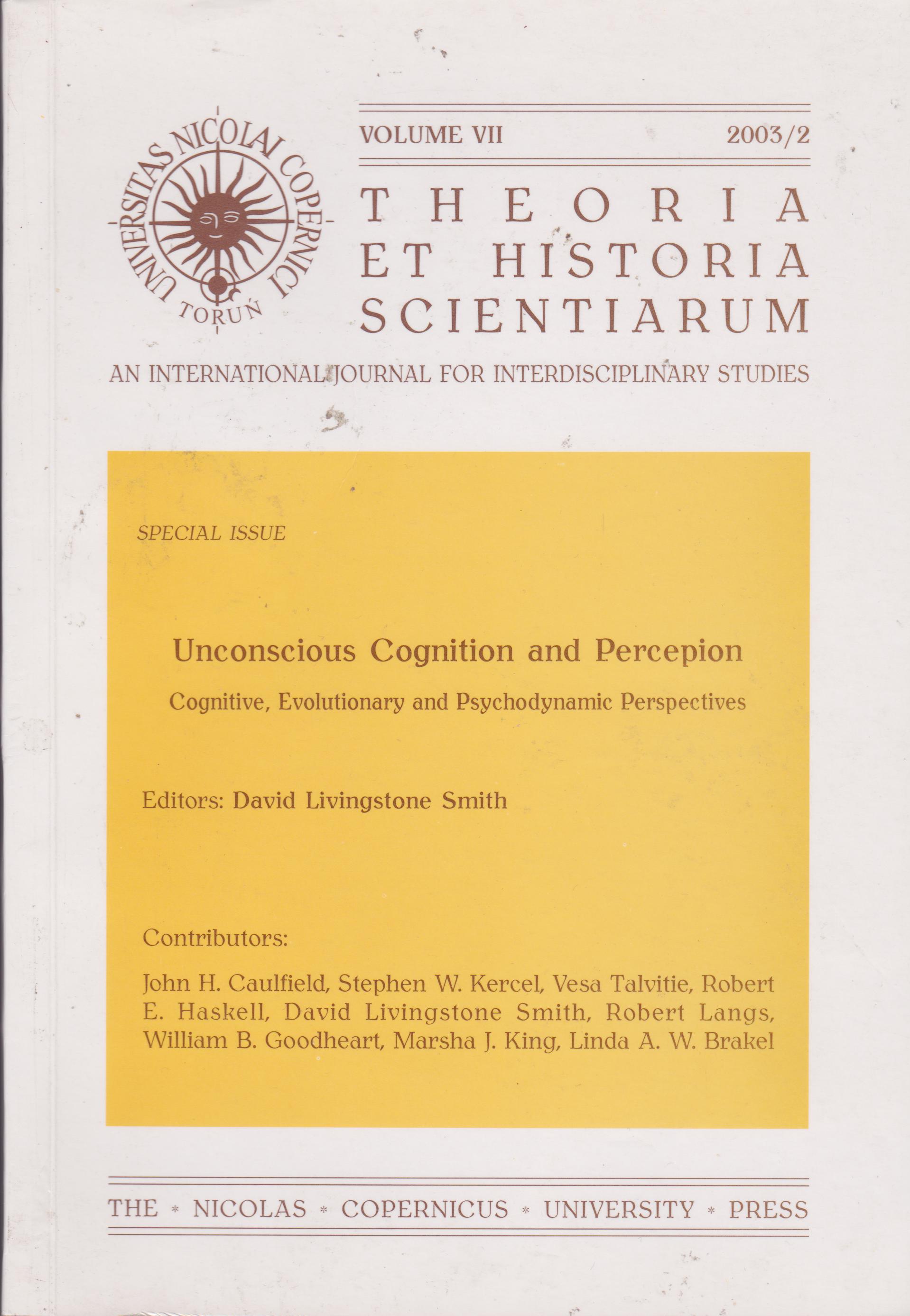Unconscious perception and communication
DOI:
https://doi.org/10.12775/ths.2003.016Keywords
unconscious perception, communication, philosphy, unconscious modeling, mental functioningAbstract
In the development of life and mind on earth, consciousness seems to have emerged rather late in the process. Some researchers believe animals as primitive as salamanders have some rudimentary consciousness. However, consciousness appears to be volitional. Humans can perform many functions unconsciously, while being conscious of very little of what is happening to them and in their world. An attention function brings information to our conscious process. We suggest that genuine communications with manmade artifacts, a technological feat not yet achieved, would need to go through a very similar attentional process.References
Aiello, G. L. and Bach-Y-Rita, P. (2000) ‘Nonsynaptically connected neural nets’ in Proceedings - European Symposium on Artificial Neural Networks, Bruges BELGIUM, 26-28, pp. 425-430.
Barwise, J. and Moss, L., 1996, Vicious Circles: On the Mathematics ofNon-wellfounded Phenomena. Stanford, CA: Center for the Study of Language and Information.
Bateson, G. (1972) Steps to an Ecology of Mind, Chicago: University of Chicago Press.
Caulfield, H. J. (1995) ‘The computer unconscious,’ Kybemetes 24, 46-52.
Creutzfeldt, D. (1979) Neurophysiological mechanisms and consciousness. Ciba Foundation Sympposium, 1979:69 217-33.
Damasio, A. R, (1999) The Feeling of What Happens, Harcourt, Brace and Company, New York.
Damasio, A. R., (1995) Descartes' Error. Emotion, Reason, and the Human Brain, Avon Books.
Dilts, R, (1983) Roots of Neuro-Linguistic Programming, Cupertino CA: Meta Publications, 1983, pp. 17-18.
Fodor, J. (2000) The Mind Doesn’t Work That Way: The Scope and Limits of Computational Psychology (Representation and Mind), Cambridge MA: MIT Press.
Freeman, W. J. (1999) How Brains Make Up Their Minds, Weidenfeld and Nicholson (London), 1999, pp. 67-193.
Gazzaniga, Michael S., 1992, Nature's Mind: The Biological Roots of Thinking, Emotions, Sexuality, Language, and Intelligence. New York: Basic Books.
Kernel, S. W. (2001) Does Incomputable Mean not Engineerable? In Smart Engineering System Design: Neural Networks, Fuzzy Logic, Evolutionary Programming, Data Mining and Complex Systems, Vol. 11, New York: ASME Press.
Korsybski, A. (2000) Science and Sanity. 5th ed. second printing. Brooklyn NY: Institute of General Semantics, p. lxii.
Kovacs, T. V. Papathomas, and M. Yang, A. Feher (1996) When the brain changes its mind: Interocular grouping during binocular rivalry. Proceedings of the Naional Academy of Science USA, 93: 15508-15511, 1996.
Libet, B., Freeman, A. and Sutherland, K. (eds.) (1999). The Volitional Brain Towards a Neuroscience of Free Will. Thorverton, UK: Imprint Academic, 1999. Series title: Journal of Consciousness Studies.
Rosen, R., (1991) Life Itself: A Comprehensive Inquiry into the Nature, Origin, and Fabrication of Life, New York: Columbia University Press, pp. 241-242.
Sacks, O. (1995) An Anthropologist on Mars, Vintage Books, New York. pp. 269-271.
Downloads
Published
How to Cite
Issue
Section
Stats
Number of views and downloads: 674
Number of citations: 0



